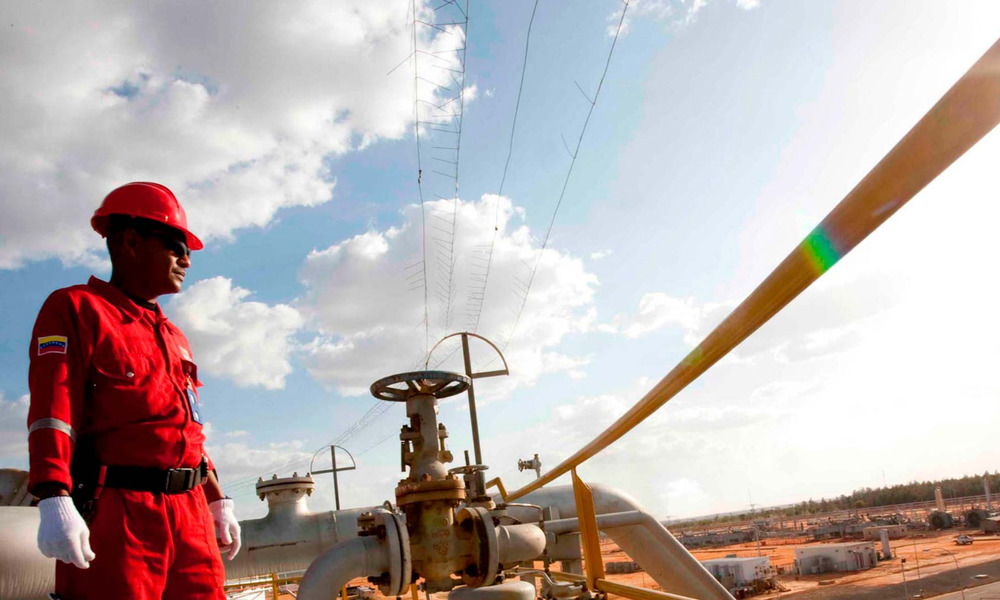RUSSIA MONITOR
Date: 30 August 2018
Rosneft Sinks Money into Venezuela’s Companies
For many years, both the Russian authorities and the state’s oil giant Rosneft have been providing their financial support to Venezuela as the country had plunged into a deep economic recession. However, it does not seem possible to recover loans amounting to at least 6 billion dollars. And Rosneft’s assets in Venezuela are threatened by claims of other foreign companies against PDVSA’s monopoly on the Venezuelan market.

The U.S. District Court of Delaware on August 23 issued an order to arrest the shares of a petroleum refinery Citgo. In 2016, the Venezuelan oil company PDVSA handed over about half of the company’s stakes to Russia’s oil giant Rosneft as collateral. And such state of affairs means that Russia will not get the money back as the firm’s shares might be transferred to Canada’s Crystallex. The verdict of the American court constitutes yet another stage of the dispute between Crystallex, its American subsidiary PDVH and Swiss-registered Rosneft Trading. PDVH currently controls 50.1 percent of Citgo shares while Rosneft Trading accounts for 49.9 percent of stakes. Canadians filed a lawsuit to secure Citgo’s shares in 2017; the company believed that PDVSA had purposely moved its assets out of the reach of creditors, for example by pledging loans. Crystallex is currently demanding a $1.4 billion compensation following a dispute over Venezuela’s 2011 nationalization of its gold mining.
Citgo is U.S. sixth largest refinery and Venezuela’s most considerable asset in the country. In November 2016, Rosneft’s daughter company received a pledge of 49.9 percent of Citgo shares, as a collateral of a $1.5 billion loan granted to Venezuela. The refinery’s overall value is estimated at about 6.5-7.8 billion dollars; thus, Rosneft’s shares in Citgo amount to approximately 3.2-3.9 billion dollars. In 2017, PDVSA and Rosneft held bilateral talks on exchanging pledge in Citgo for a contract for fuel supplies and shares in oil fields. Nonetheless, following the Delaware court ruling, the situation may develop in a twofold manner. The PDVSA-Rosneft deal may thus be validly declared null and void; the Russians will be no longer entitled to hold shares, Citgo will be rapidly sold while all the funds will be used to pay off debts to Crystallex. Moreover, Crystallex may possibly take over Citgo and then pay off all debts to Rosneft. And, theoretically speaking, it is still plausible to settle the issue in an amicable way. Crystallex is not the only company that decided to file a lawsuit against Rosneft Trading and PDVSA; such was also the case of U.S. oil firm ConocoPhillips. But both the company and PDVSA managed to conclude a deal, under which the Venezuelan company pledged to pay up 2 billion dollars.
Rosneft’s dispute with Crystallex may cost the latter even 1.4 billion dollars. Sechin’s enterprise has been subsidizing Venezuela for quite a long time; Rosneft constitutes one of the largest foreign donors of the country’s economy. In addition, it is the only Russian company that did not withdraw from the market while it disposes of shares in a number of Venezuela’s hydrocarbon deposits. And Rosneft helped PDVSA by prepaying oil and fuel supplies; nonetheless, due to the company’s debt amounting to 6 billion dollars, the Russians finally decided not to pay in advance. Bearing in mind dramatic state of both PDVSA and Venezuela’s economy, it may be expected that either most of these funds, or even all of them, will ultimately prove to be a non-returnable and politically motivated subsidy, aiming to support the Maduro regime.
All texts published by the Warsaw Institute Foundation may be disseminated on the condition that their origin is credited. Images may not be used without permission.














